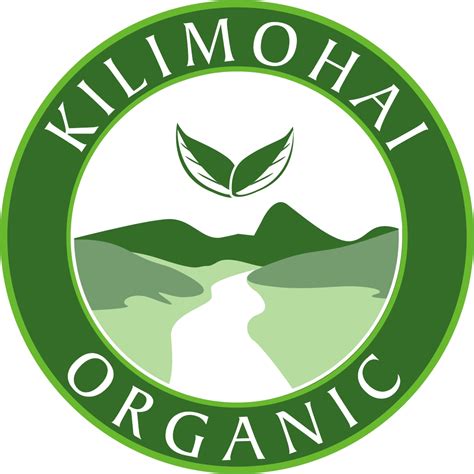2nd Kenya National PGS Workshop
THE 2nd KENYA NATIONAL PGS WORKSHOP
Date : Friday 17th November 2023
Venue : Sports View Hotel Kasarani
Time : 9.00am – 4.00pm
Goal : Improved farmers’ livelihoods driven by an increased organic market value and effective organic sector services being part of a well-coordinated sector.
Objectives:
- To develop strong PGS systems for greater transparency and guarantee of Kilimohai Organic Produce.
- To provide opportunity for improved networking among PGS groups in Kenya.
- To create a platform for cross learning about the opportunities and best practices in PGS.
Participants:
- PGS group representatives from all over Kenya
- NGO partners sponsoring PGS groups
- Organic Sector Traders,
- Retailers and
- Interested parties from County Governments
Introduction
Whereas Organic farming is seen as an alternative to conventional farming which has negative attendant impacts on the environment, 3rd party certification is often times seen as a significant hurdle in market access for organic smallholder farmers. Participatory Guarantee Systems were introduced as a way of empowering farmers to take charge of organic certification through self-guarantee while building groups to be cohesive marketing units for organic produce. PGS being a grassroots initiative is coordinated at the national level by the national organic movements who are in charge of among other things ; assessing and approving PGS groups, maintaining a national registry of PGSes by collecting and collating groups information.
With over a decade of PGS implementation, the process in Kenya has evolved to have its own unique flair, with multiple groups exhibiting diverse characteristics, norms and modalities. With such a rich pool of experiences to draw from, the Kenya Organic Agriculture Network (KOAN) the national coordinator for PGS groups in Kenya is finalizing an assessment of various PGS groups in order to catalogue best practices, challenges and opportunities and recommendations for growth.
As a way of sharing this information and enhancing interaction and experience sharing among PGS groups in Kenya, the Kenya Organic Agriculture Network is organizing the 2nd Kenya National PGS Workshop which is envisioned to be a consultative session where PGS representatives from different parts of Kenya will meet up to share and discuss critical matters regarding how PGS in Kenya are managed. The workshop will offer opportunities to discuss the future of PGS in Kenya and how to decentralize the development and approval.
There will be launching of awards for outstanding PGSes in different categories where the judging criteria will be shared to the groups in attendance for judging in 2nd National PGS workshop 2023.
Activities for the workshop will include:
Objective 1: To develop strong PGS systems for greater transparency and guarantee of Kilimohai Organic Produce.
- Presentation of current PGS register and how they are functioning.
- Discussion on how should an ideal PGS look like?
- Discussion on the link between standards the system and the mark.
- Presentation of the National PGS structure (NPGS committee and how they are functioning and their plan.)
- Discussion on trust building in PGS systems.
Objective 2: To provide opportunity for improved networking among PGS groups in Kenya.
- Presentation by PGS groups on how they are doing their operations.
- Break out session on the different zones and how to improve networking.
Objective 3: To create a platform for cross learning about the opportunities and best practices in PGS.
- Profile of a successful group – shown as a video/ presentation
- To compare where the different PGS are and what to do to bridge the gaps
Africert
Africert Limited is a certification company with accreditation and endorsements from various standard owners in the Agribusiness sector. They are known for their commitment to providing consistent, high-quality certification services, distinguishing them in the industry.
Inspections and verifications are led by internationally accredited personnel to ensure adherence to the highest standards. This dedicated team brings extensive experience to the certification process, demonstrating a comprehensive understanding of production systems within the agricultural sector and their alignment with specific standard requirements.
Africert offers personalized attention to clients of all sizes, employing a flexible approach designed to meet unique client needs while upholding established standards. They conduct audits that reflect versatility, understanding the diverse strategies for operating a successful business or production system.
Additionally, Africert places a strong emphasis on preventing conflicts of interest, demonstrating transparency and trustworthiness in their procedures.
Mission Statement
Africert’s mission is to provide competitive and impartial product and process assurance services to producers and processors, both local and international. This mission serves as a catalyst for market access and sustainability.
Vision Statement
Africert aspires to deliver timely and professional product and process assurance services that not only add value for customers but also contribute significantly to the growth of the organization.
Core Values
- Integrity: Africert upholds the highest ethical standards in all interactions and operations.
- Professionalism: The team at Africert is characterized by their expertise, reliability, and unwavering commitment to excellence.
- Respect: Clients, partners, and colleagues are treated with utmost consideration and fairness.
Quality Policy Statement
Africert is firmly committed to operating with competence, consistency, and impartiality to safeguard and meet the accreditation requirements of their systems.
Commitment to Excellence
Africert not only welcomes customer feedback but also responds promptly and effectively, utilizing their technical and managerial prowess to deliver the best outcomes.
Global Impact
Operating from Africa, Africert provides cost-effective services to producers and processors, ensuring that quality products from the continent access global markets. Their dedication to this cause is a testament to their commitment to the industry and the clients they serve.
Contact Details
Plaza 2000 1st Floor, East Wing Mombasa Road P.O. Box 00200-74696 Nairobi Kenya
Tel: +254 715 041 339
Email : info[a]africertlimited.co.ke
Kilimohai Organic
The Kilimohai Organic mark is a certification for organic produce and processed products in East Africa. It is endorsed by the Kenya Bureau of Standards (KEBS) and is based on the East African Organic Products Standard (EAOPS). This certification is a product of the Kenya Organic Agriculture Network (KOAN), an organization dedicated to promoting organic farming in Kenya and East Africa. It guarantees that agricultural crops are cultivated without the use of chemical inputs and undergo a thorough review and verification process by specialized inspectors to ensure compliance with the Kilimohai Organic production standard.
For further insights into organic farming, you can explore the Kilimohai website. It offers a range of training materials, case studies, and farming manuals.
Why Get Organic Certified
Organic certification is a process by which agricultural products, including crops and livestock, are verified to have been grown or raised according to specific standards and practices defined by organic farming principles. These principles typically include:
Avoidance of Synthetic Inputs: Organic farming prohibits the use of synthetic chemicals such as synthetic fertilizers, pesticides, herbicides, and genetically modified organisms (GMOs).
Soil Health and Conservation: Organic practices emphasize soil health through techniques like crop rotation, composting, and the use of natural fertilizers to promote natural nutrient cycling and prevent soil degradation.
Biodiversity Conservation: Organic farming encourages the preservation of biodiversity by promoting natural pest management, using cover crops, and creating habitats for beneficial wildlife.
Animal Welfare: In organic livestock farming, there is an emphasis on providing animals with access to the outdoors, adequate space, and a diet free from synthetic additives and growth hormones.
Avoidance of Antibiotics and Hormones: Organic livestock farming generally prohibits the use of antibiotics for non-therapeutic purposes and the use of growth hormones.
Genetic Integrity: Organic certification typically requires the use of non-GMO seeds and livestock breeds.
Traceability and Transparency: Organic certification involves keeping detailed records of all farming practices, inputs used, and any treatments applied to crops or livestock.
To achieve organic certification, farmers and producers must go through a rigorous verification process conducted by accredited certification bodies. These bodies assess whether the farm or operation complies with the established organic standards.
Once certified, products can bear an official organic label or seal, which indicates to consumers that the product has met these specific organic farming standards. This label assures consumers that the product is produced using methods that prioritize environmental sustainability, animal welfare, and human health.
Organic certification helps create transparency in the market, allowing consumers to make informed choices about the products they purchase and supporting sustainable agricultural practices
Inaugural Participatory Guarantee System Training of Trainers held by KOAN.
Unlike the “Third Party Certification” approach, which relies on external inspection bodies, the Participatory Guarantee System (PGS) represents an alternative assurance system. PGS involves internal procedures that are less rigorous and less costly, making it particularly suitable for local farming setups comprising groups of farmers, buyers or consumers, and stakeholders. PGS enables consumers, farmers, and all participants in the value chain to establish an “organic guarantee” system built upon principles of transparency and trust. This system empowers smallholder farmers working in groups to cultivate and market organic agricultural produce, while consumers gain access to safe products and become actively engaged in the agricultural process.
In Kenya, the adoption of the Participatory Guarantee System (PGS) has witnessed ongoing growth, with 25 groups currently registered and approved by KOAN. As the custodian of the East African Organic Products Standards, KOAN establishes the regulations governing PGS in Kenya. Furthermore, there has been a notable increase in the demand for organic products. As consumer interest in organic food production continues to surge, it becomes imperative to expand the supply of organic products. Numerous farmer groups across the country have received training in organic farming and collaborate with NGOs and CBOs. However, these groups encounter challenges in accessing organic markets due to the absence of a formal guarantee system.
On 8th June 2023, KOAN conducted its inaugural virtual training on Participatory Guarantee System (PGS) Training of Trainers (ToT). The primary objective of the training was to enhance and strengthen the skills necessary for effectively implementing and auditing PGS groups, thereby facilitating the growth of PGS in Kenya. The training aimed to establish a group of accredited PGS Trainers of Trainers (TOTs) and Assessors who would play a pivotal role in expanding the number of PGS groups across the country. By doing so, the training sought to augment the range, assortment, and seasonal availability of organic products in the market, originating from PGS groups. This training attracted a diverse group of over 30 participants who already possess experience in working with farmers’ groups and providing training on organic farming practices. The participants were carefully chosen from various regions across Kenya, where organic farming is practiced, and were selected from both KOAN members and partner organizations, including PELUM Kenya and Biovision Africa Trust.
During this initial stage of the training, participants were required to complete a pre-training form aimed at assessing their existing knowledge, skills, and pertinent working information. Subsequently, the participants attended the inaugural training webinar, which focused on the formulation of a PGS development plan. This training provided participants with the necessary tools to gather information and develop an initial draft of the development plan. Stay connected with us via social media channels for updates regarding the upcoming steps, during which the participants will present and further refine the draft development plan in a face-to-face training. This comprehensive training program will involve three days of classroom sessions and a one-day experiential learning opportunity in the field.
If you require further information about the training or wish to register your group for PGS, please get in touch with Samuel Ndungu via email ndungus@koan.co.ke











